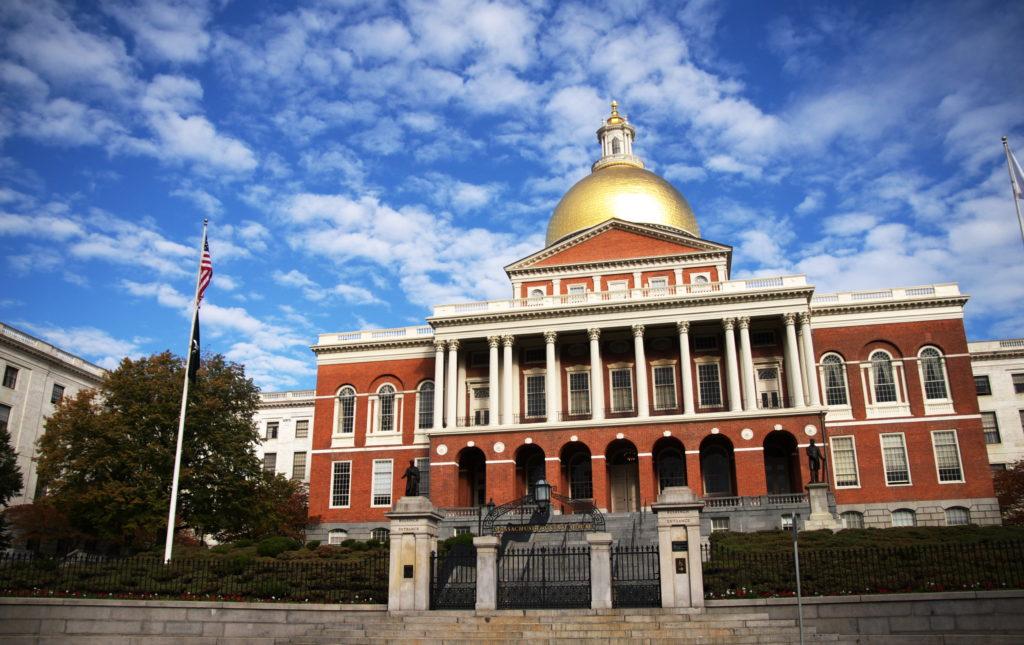By Lucas Calero, news correspondent
On Friday dozens of Bosnians from around the state gathered in the Massachusetts State House Flag Room to celebrate 25 years of an independent Bosnia and Herzegovina at an event sponsored and organized by the New England Friends of Bosnia and Herzegovina (NEFBiH).
It was a relatively small gathering of only a few dozen considering that Massachusetts has 15,000 Bosnian immigrants, according to the NEFBiH. Prominent members of the local Bosnian community came to speak about their journey from Bosnia to Massachusetts. Many Bosnians left their country during the period of unrest in the Balkan peninsula accompanying the breakup of Yugoslavia in the early 1990s. In Bosnia and Herzegovina, the conflict included the ethnic cleansing of Bosnian Muslims.
Admir Masic, the Esther and Harold E. Edgerton career development professor at the Massachusetts Institute of Technology, spoke about his time in a refugee camp in Italy and his struggle to get access to basic education. He spent two years in the refugee camp before Italy changed its laws and allowed him to enroll into the University of Torino in Italy, where he eventually earned his Ph.D in physical chemistry.
“We are developing tools to assist in nonconventional situations, especially for refugees,” Masic said. “I just came from the U.N. on Tuesday where we were discussing solutions [for refugee education] to to go around the world.”
Masic was not the only one with stories about the struggles of immigrating into the United States. Ismar Volić, an associate professor of mathematics at Wellesley College, moved to Massachusetts as a child. He talked about leaving his his family back in Bosnia, and how he waited tables full–time to sustain himself through high school and college.
“[Boston was] my home in the U.S.,” Volić said. “This is where my formative years of my second life took place.”
Many attending the event referenced the second lives they started after the United States took them in as refugees all those years ago. Most of them had been in refugee camps at some point in their lives and were grateful for the opportunities that the country had given them.
“Bosnia went through a lot with the war,” said Lejla Arapcic, the president of the NEFBiH board. “We are thankful to the state of Massachusetts for taking all our refugees in 20 years ago.”
The Bosnian nationality encompasses three different ethnicities, three different religions and three different languages. The history of diverse country was highlighted by the attendees’ excitement to celebrate the historic independence. Many in the audience repeated the statistic that 25 years ago, 63.6 percent of the population gathered to vote for independence from the Yugoslav state in a 99.7 percent landslide.
The room was filled with several families that mingled with each other and conversed in a interchangeable combination of Bosnian, Croatian and Serbian around a table of Bosnian desserts. In a room adjacent, about a dozen young girls wearing traditional outfits that were preparing to perform a typical celebratory dance.
Amanda Hukanovic, co-chair of the NEFBiH closed the keynotes with a poignant speech expressing the willingness of Bosnians to enrich the communities that took them in.
“[We’re] committed to paying back the generosity that was once provided for us,” she said. “Simultaneously, we rededicate ourselves to working on building strong and multi-ethnic bonds that reflect our democratic ideology for all citizens.”
Photo courtesy of Hsin Ju Hsu, Creative Commons









